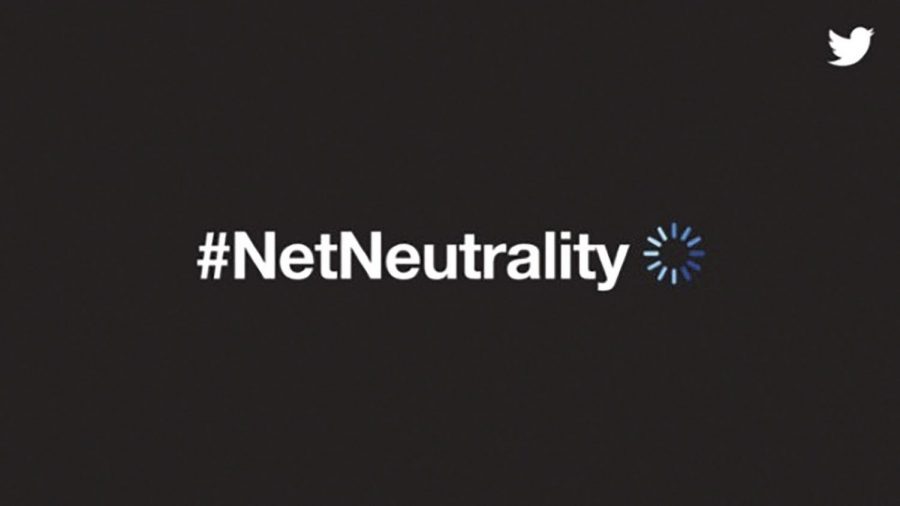Professors weigh in on net neutrality changes
April 16, 2018
Net neutrality will be repealed April 23 by the Federal Communications Commission, which could mean paying more for internet services.
“Net neutrality was created to keep the internet open and fair. However, now that the FCC has repealed it, they can also slow down, speed up and block any websites they wish,” Seth Fiegerman, a writer for CNN, said.
Maria Stover, professor and chair of Washburn’s mass media department, was saddened that net neutrality is being repealed because she believes the repeal works against everyday consumers.
“For many years, it was a bipartisan issue,” Stover said. “States are trying to combat it because it is not a federal law. The Trump administration is repealing it as a federal law, and states are stepping in and trying to make it a state law. Free internet shouldn’t be just free, but equal. Every line that goes through people’s houses should be equally charged. The whole point of the internet when it was created was a way to spread knowledge and ideas and to have it equal. Some of the big service providers could make it harder. It doesn’t benefit the ordinary people, it’s always about big business.”
Ajit Pai, the Trump-appointed FCC chairman, planned on repealing net neutrality because he wanted the internet to return “to the light-touch framework,” where he believes the internet thrived the most.
The repeal could affect consumers greatly. Internet service providers may start to bundle services, websites and applications, and could charge more depending on what the consumer wants, according to Kaitlyn Schallhorn, a writer for Fox News.
“If it’s one thing that cable companies have proven to be good at over the years, it’s more ways to get money out of consumers and into their own pockets,” Kenneth Feld, the CEO of Feld Entertainment, said. “Primary broadband providers will take advantage of this to find new ways to charge customers if they want to get high quality service.”
Once April 23 rolls around, paying for social media services like Facebook and Twitter could become the new way to access your feeds. Sadly, this process is already happening in other countries as well.
Representative Ro Khanna, a California democrat, posted a screenshot on Twitter in October showing subscription plans to access social media, movie services and even email from a Portuguese mobile carrier, according to Keith Collins, a writer for the New York Times.
Rural areas will definitely be hit by the potential loss of net neutrality.
“Net neutrality is taking away the rule that would enforce that anyone has the option to sign up for internet at the same price, and that goes for dial-up,” Kristen Grimmer, Washburn mass media professor said. “Taking net neutrality away of course is a problem because there are places where dial-up is all you can get. It will mostly affect the rural areas, which Kansas has a lot of. If you take that away, and if the FCC doesn’t want to provide another alternative for internet, they could charge you an insane amount for dial-up. At that point, it would be terribly slow and ineffective. Therefore, they are saying they don’t want to serve those type of customers.”
Small businesses may be greatly impacted as well. Services like Netflix, a company worth $100 billion, are able to pay for the consequences of the repeal. However, small business will suffer.
“The internet, the speed of it, our entire business revolves around that,” said David Callicott, who sells paraffin-free candles on his website, GoodLight.
Paying for internet, especially for college students, and then having to pay extra for faster internet, will be a frustrating battle when it comes to getting things done online.



